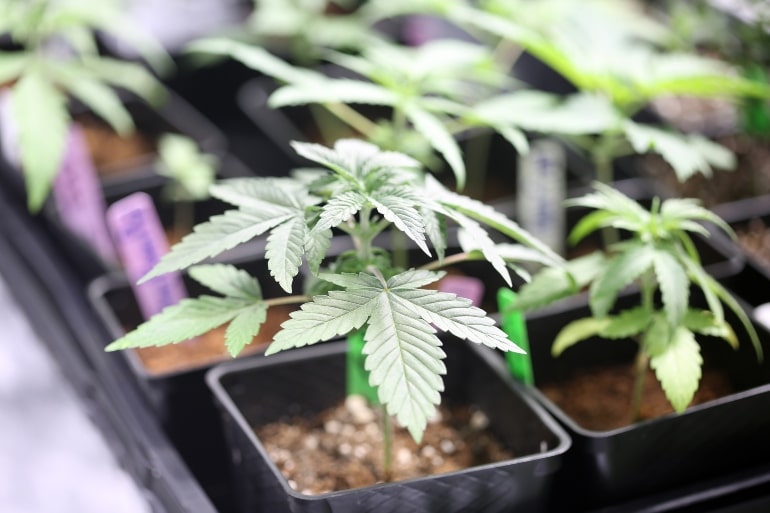Is Marijuana Legal in Michigan? Here’s Everything You Need to Know
If you’ve ever wondered about the following issues regarding Michigan marijuana laws, you are not alone:
- Is marijuana legal in Michigan?
- Are there different rules for medical marijuana than recreational marijuana?
- Can I smoke marijuana in public places?
- What about edibles?
- Do Michigan marijuana laws conflict with federal marijuana laws?
The legalization of marijuana has long been a source of controversy and confusion, here and across the country. Now that recreational and medical marijuana are legal in Michigan, many people are even more bewildered. Here is a guide to help you understand the current Michigan marijuana laws.
Do You Have a Case?Is marijuana legal in Michigan for all types of use?
First, it’s important to understand the distinction between recreational marijuana and marijuana used for medical purposes. Medical marijuana was legalized in Michigan in 2008, followed by the legalization of recreational marijuana in 2018. While both types are now legal in Michigan, their sales and use are governed by different sets of laws.
Michigan medical marijuana laws
The biggest difference is that medical marijuana users must have a doctor’s prescription and suffer from certain medical conditions. They must also obtain a registry identification card from the Michigan Department of Licensing and Regulatory Affairs (LARA).
Minors (under 18) must submit certification forms from two separate physicians, plus permission from their parents or legal guardians.
Qualifying medical conditions include cancer, AIDS, PTSD, arthritis, colitis, autism, cerebral palsy and chronic pain. For a complete list, visit https://www.michigan.gov/lara
Patients are allowed to possess:
- Up to 2.5 oz. of usable marijuana and/or usable marijuana equivalents
- 12 marijuana plants kept in an enclosed, locked facility, unless the patient has specified a primary caregiver to cultivate marijuana for them
- Any incidental amount of seeds, stalks, and unusable roots
Caregivers, who also need a registry identification card, may possess the same amounts for each qualified patient.
If stopped by law enforcement, patients and caregivers must present their registry identification card and valid driver’s license or government-issued photo ID.
Recreational (or adult-use) marijuana laws
Under the 2018 law, adult recreational users (21 and over) may grow, possess and consume marijuana in their own homes. In addition, those over 21 may legally transport marijuana, marijuana products, accessories and plants.
Users must comply with the following quantity limits:
- Each individual may carry up to 2.5 oz. of marijuana (or 15 grams of concentrate) on their person.
- Adults can possess up to 10 oz. in their homes, but anything over 2.5 oz. must be locked up.
- Each household may grow up to 12 marijuana plants. Outdoor plants must be in a locked enclosure that is not easily visible to the public. Renters must obtain approval from their landlords to grow marijuana.
What is illegal under Michigan recreational marijuana law?
- Using marijuana (smoking or edibles) in a public place
- Smoking marijuana or consuming edibles while driving or riding in a vehicle
- Using marijuana in any form under the age of 21, except individuals with a valid medical marijuana registry card
- Operating any vehicle with a motor while under the influence of marijuana; including motorcycles, aircraft, snowmobiles, off-road recreational vehicles (ORVs) and motorboats
In addition, employers may still discipline or fire employees who use marijuana on the job or come to work under the influence. Employers may also use drug test results as a factor in hiring decisions.
What about federal marijuana laws?
Recreational marijuana is now legal in several states besides Michigan. In addition, other states have decriminalized its use under certain conditions.
However, under federal law, marijuana is currently classified as a “Schedule 1” drug considered to have “a high potential for abuse.” Other drugs in this category include heroin, ecstasy and LSD.
Those who transport marijuana to other states could encounter legal problems in states where marijuana is illegal.
Michigan marijuana laws are complicated, but finding the right attorney is simple.
Call 1-800-CALL-SAM today for a free, no-obligation consultation.
Do You Have a Case?Sources:
- http://www.legislature.mi.gov/(S(2rivlpdj1cosjdcdx3t1l1vi))/mileg.aspx?page=getObject&objectName=mcl-333-26424
- https://www.michigan.gov/lara/0,4601,7-154-89334_79571_83746-449306–,00.html
- https://www.clickondetroit.com/michigan-marijuana/growing-marijuana-in-michigan-here-s-what-to-know-about-the-law
HAVE YOU BEEN INJURED?
Get The Bernstein Advantage® today!
Free. Simple. Quick.


